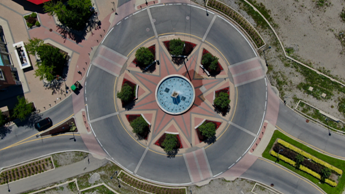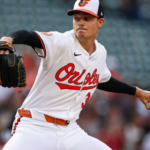The phrase “trees for sale” may sound simple, but for professional landscape architects, developers, and serious gardeners, it carries significant implications. Behind each sale is a decision that can affect the aesthetic, environmental, and financial performance of a landscape project for decades. Whether designing a streetscape, a civic park, a commercial plaza, or a residential community, the tree species, size, and origin matter—and so does the nursery supplying them.
In Florida, where climate conditions are both favorable and challenging, trees must do more than look good. They need to survive heat, salt, wind, and inconsistent rainfall while enhancing biodiversity and aligning with local ecological goals. That’s why discerning professionals don’t just look for trees for sale—they look for the right trees, grown under the right conditions, and supplied by nurseries with technical expertise and logistical capacity.
What defines a high-quality tree?
Not all trees are equal, even when they share the same species label. The quality of a tree depends on multiple factors, from how it’s propagated and pruned to how its root system is developed and maintained during cultivation.
A high-quality tree should display:
- A strong, straight central leader (for species where this is typical)
- Even, well-spaced lateral branches
- A trunk free from wounds, sunburn, or bark defects
- A dense, fibrous root ball with no girdling or circling roots
- Proper size-to-container ratio (i.e., not root-bound or overgrown)
These traits aren’t just about appearance—they directly impact how well a tree will establish after transplanting. Poor-quality trees may struggle to adapt, require excessive pruning or staking, and be more vulnerable to wind damage or pest infestations.
TreeWorld Wholesale specializes in delivering trees that meet these professional standards. Their inventory includes both native and non-native species adapted to Florida’s climate, each grown with close attention to structure, root development, and long-term viability.
Trees by function: Matching tree selection to landscape goals
When reviewing trees for sale, professionals need to think beyond genus and species. Each landscape has its own set of goals—shade, stormwater control, habitat support, wayfinding, or visual framing—and tree selection must reflect those objectives.
Here are some examples of functional tree categories and top-performing species from TreeWorld’s offering:
Shade trees for energy savings and microclimate regulation
Large-canopied trees help cool paved surfaces, reduce building heat gain, and make public spaces more comfortable. For Florida landscapes, Simarouba glauca (Paradise Tree) and Swietenia mahagoni (Mahogany) provide excellent canopy coverage, strong wood structure, and native resilience.
Ornamental trees for seasonal interest and curb appeal
Trees that flower or fruit add dynamic color and texture. Cassia bakeriana (Pink Shower Tree) and Tabebuia heterophylla (Pink Trumpet Tree) offer vibrant blooms and are suitable for both urban and residential designs.
Wind-resistant trees for coastal and hurricane-prone areas
With Florida’s exposure to storms, wind tolerance is a must. Bursera simaruba (Gumbo Limbo) and Calophyllum brasiliense (Brazilian Beauty Leaf) are known for their flexible trunks and deep root systems that anchor them through tropical weather events.
Habitat trees for ecological enhancement
Species that support birds, pollinators, and native fauna are increasingly used in sustainable landscape design. Annona glabra (Pond Apple) and Ficus aurea (Strangler Fig) not only thrive in wet conditions but also provide food and shelter for wildlife.
Street and urban trees for confined spaces
Urban installations often have soil volume limitations, overhead lines, or pedestrian traffic to consider. Trees like Lignum vitae (Guaiacum sanctum) and Thespesia populnea (Seaside Mahoe) are compact, tolerant of pruning, and aesthetically valuable in tight spaces.
By sourcing these species from a wholesale nursery like TreeWorld, designers benefit from plant stock that has been field-tested and conditioned for Florida’s unique environments.
Why source from a professional wholesale nursery?
A professional nursery isn’t just a supplier—it’s a partner in landscape success. TreeWorld Wholesale offers a wide variety of container-grown and field-grown trees, delivered with consistency, transparency, and technical support.
Here’s what distinguishes a reputable wholesale supplier from standard retail options:
- Commercial-grade sizing: Trees are available in sizes suitable for immediate impact—critical in high-profile projects or fast-moving developments.
- Large quantities: TreeWorld can fulfill orders for hundreds of identical trees, ensuring consistency across a development or municipal project.
- Climate acclimation: Trees grown in South Florida are already adapted to local heat, pests, and rainfall cycles, reducing transplant shock.
- Species selection support: TreeWorld provides expert input on tree function, placement, root behavior, and long-term care.
- Phased delivery: For multi-stage installations, trees can be held or staged to match construction and planting schedules.
This support is particularly valuable for landscape contractors, architects, and municipalities managing tight timelines and performance expectations.
Site-specific selection and long-term value
Ultimately, selecting trees for sale isn’t just about finding what’s in stock. It’s about matching the right tree to the right location—balancing aesthetics, performance, and sustainability.
Considerations include:
- Soil type and pH
- Exposure to salt or wind
- Available irrigation
- Maintenance budgets
- Regulatory requirements for native species
TreeWorld’s inventory includes trees suitable for all these variables. For projects pursuing green building certifications or local tree ordinances, TreeWorld’s selection of native species meets the required criteria while offering flexibility in form, size, and function.
From residential subdivisions and commercial plazas to coastal parks and urban campuses, properly selected trees are among the most durable and visible elements in the landscape. Their success begins with informed sourcing from growers who understand what makes a tree not just viable, but valuable.
Conclusion: More than just trees for sale—trees for success
When browsing trees for sale, landscape professionals must look past price tags and plant lists. Success depends on species selection, structural integrity, root system development, and nursery expertise. Partnering with a wholesale nursery like TreeWorld ensures that every tree contributes to the visual, functional, and ecological goals of the project.
Whether you’re looking to frame an entry, shade a sidewalk, restore a native habitat, or define a streetscape, TreeWorld offers the species diversity, professional knowledge, and consistent quality to support your vision—tree by tree.
Read More : Can You Bring a Candle on a Plane


